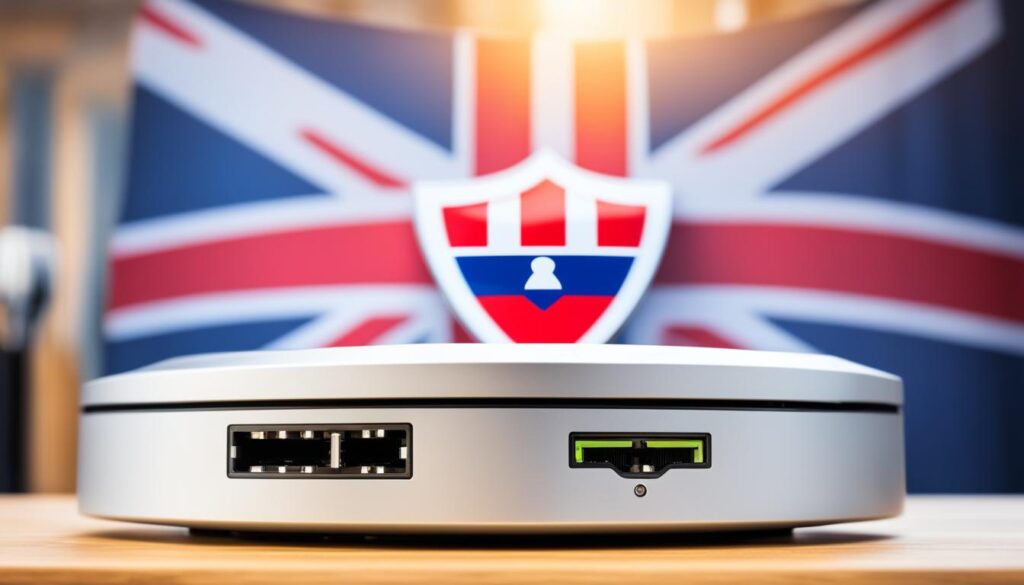You know how it is in a British home right now… you look around the living room and suddenly realise you’ve accidentally built a small robot army. The TV’s online, the Ring doorbell sends you a notification every time the fox walks past at 2 a.m., the thermostat judges you for putting the heating on in October, the kids have tablets, you’ve got Alexa in three rooms, and even the bloody kettle wants to join the Wi-Fi. I counted mine last week – 16 things connected. Sixteen! And I don’t even consider myself particularly gadget-mad.
Every single one of those devices is happily chatting to the internet all day long, telling the world what you’re watching, when you’re home, when you go to bed, what temperature you like your bedroom… and most of them are doing it completely in the nude – no encryption at all.
And the really scary bit? You can’t install a VPN app on a smart bulb. You can’t teach the PlayStation how to use Surfshark. You can’t tell the baby monitor to please stop phoning China every five minutes. They’re defenceless little digital lambs.
That used to keep me properly awake at night… until I discovered the absolute game-changer that fixes the whole problem in one go: put the VPN on your router.
When you do this one thing, every single device in the house – from your iPhone to the £8 smart plug you bought in the Prime sale – instantly becomes private and secure. It’s like throwing an invisibility cloak over the entire building. Your ISP can’t see what you’re doing. Hackers on the train Wi-Fi can’t see you. Even the government has to go and get a warrant if they want to know what you’re up to (and yes, they still try sometimes in 2025).
And the very best part? Once it’s set up, you never, ever have to think about it again. It just works, all day, every day, forever. No “did I remember to turn it on?”, no teaching the kids, no nagging your partner. Even when your mate Dave comes round and connects to the Wi-Fi to check the football scores – Dave is protected too and he hasn’t got a clue.
I’m telling you, this is the single most satisfying upgrade I’ve ever done to my home, and I’ve been fiddling with tech since the days of dial-up modems and Ceefax.
So let’s talk about what’s actually possible in the UK right now, in November 2025, because honestly it’s never been easier.
Over 96% of UK homes have internet, and the average house now has 10–15 connected devices. That’s you, me, your mum, your neighbour with the Virgin Media hub – literally everyone. And the routers that BT, Sky, Virgin, EE, and TalkTalk give you are absolutely fine for Netflix and Zoom… but almost none of them let you run a proper VPN on them. That’s just how it is. They’re locked down.
But don’t worry – we don’t fight it. We just add our own little box that does the job properly, and in 2025 that’s genuinely dead simple.
There are really only two paths that normal people take these days, and both are absolutely lovely:
Path 1 – The “I just want it to work and I don’t mind spending a bit” option
This is the one I recommend to literally everyone who isn’t a nerd. You buy the ExpressVPN Aircove router. It’s about £190–£220 depending on where you get it (Amazon, Currys, or straight from ExpressVPN). You take it out of the box, plug it into your current BT/Sky/Virgin hub, spend five minutes picking which country you want, and you are done. For life.
My sister did this completely by herself last month. My actual sister – the one who still rings me when her printer “stops working” (it’s always unplugged). She texted me a week later saying she was watching iPlayer in Spain with no buffering. If she can do it, I promise you can.
Path 2 – The “I love a bargain and want the absolute best performance” option
This is the one that makes proper tech people grin like idiots. You buy a GL.iNet router – either the tiny Beryl AX (around £85–£100) or the absolutely brilliant Flint 2 (around £145–£170). These little boxes were basically invented for this exact job.
You plug it in, go to a webpage on your phone, scan a QR code or upload one tiny file from whichever VPN you fancy (ExpressVPN, Surfshark, Mullvad, Proton – they all work perfectly), and you’re finished in ten minutes. I’ve got the Flint 2 at home on my gigabit Virgin Media connection and I lose maybe 20–30 Mbps tops. It’s ridiculous how good they are now.
Most people pair these with Surfshark because it’s stupidly cheap and allows unlimited devices. So for about £2 a month plus a one-off £150 for the router, your entire house is protected forever. That’s less than the price of a Pret coffee subscription for proper peace of mind.
Once this is running, magic happens. Your smart TV can watch BBC iPlayer, ITV X, Channel 4, All 4 – everything – without any “not available in your region” nonsense. Your kids’ tablets are safe wherever they connect. The security cameras stop phoning home to random servers in who-knows-where. Even the robot vacuum finally shuts up and just cleans the carpet.
A few little things I always tell people so nobody panics:
- You’ll probably lose 5–10% of your speed on a fast connection. You genuinely won’t notice.
- Never run the VPN app on your phone AND the router at the same time – that’s double encryption and makes everything crawl. Just delete the app once the router is sorted.
- Yes, everything still works perfectly – iPlayer, Netflix, Prime, Disney+, Now TV, Sky Go – ExpressVPN and Surfshark are still untouchable for UK streaming in 2025.
If you’ve got Virgin, BT, Sky, whoever – the trick is usually to put their hub into modem mode (30-second job, there’s a YouTube video for literally every single model), plug your new router in, and you’re away. Couldn’t be easier.
Honestly, I get properly excited telling people about this because it’s one of those rare things that’s both incredibly useful and permanently solves a problem you didn’t even realise was making you anxious.
So here’s my offer, completely free and no pressure: tell me who your broadband provider is, whether you’d rather spend £90 or £200, and whether you want the dead-simple option or the best-value option, and I’ll give you the exact model, the exact shopping link (Amazon, Currys, wherever’s cheapest today), and the exact step-by-step you need. I’ll even send you the right YouTube video in perfect English.
You deserve a house that’s properly safe online. And in 2025, this is so easy there’s literally no excuse left.
You’ve 100% got this, and I’m right here cheering you on if you want me to hold your hand through it. ❤️



